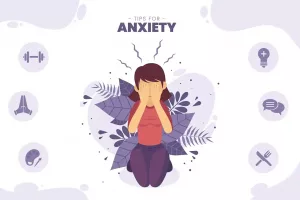Everybody smells, that’s just a fact of life but the question is: Can it be changed due to your health condition? The answer is yes. Not only can a disease change the way you smell but different diseases can cause different smells and when we say diseases, we’re not just talking about physical ailments. It is also possible to detect a mental illness through smell. This is not really deserving of a spoiler alert because our species has known about it for thousands of years. Even Hippocrates, apparently, used smell as a diagnostic tool when he would sniff the breath and urine (Ughhhh Gosh) of people to see if there was some sort of ailment going on in their body.
How Exactly Diseases Change The Way A Person Smells?
The smell from a disease will emanate from your breath, your blood, your urine, your sweat and there’s a culprit at play here: a chemical. The chemical’s known as Volatile Organic Compounds – or VOCs for those in the know – influence the way these smells emanate. A diseased cell metabolizes in a different way than a healthy one and this is what makes something rotten in the state of Denmark if Denmark is your body.
Experts believe that this smelling disease capability is an evolutionary adaptation that we, the human species, have evolved to sense an ailment from another member of our species and that it gives us a “heads up” so we can stay away from them and prevent the spread of disease. This may also be why certain scents are just so repellent and repugnant and disgusting to people, because on some level we associate them with disease.
Now if you understand everything above, we can move on to the bigger question: What do diseases smell like? Actually, there is a list for that and some of them are;
- Diabetes: Rotten apples
- Typhoid Fever: Baked bread
- Yellow Fever: A butcher’s shop
- Liver Disease: Fishy, livery smell on breath
- Kidney Disease: Breath smells like urine
- Cystic Fibrosis: Acidic breath
- Diphtheria: Sweet odor
- Some Cancers: Distinct smell in urine
- Schizophrenia: Over-ripened fruit
Who Can Actually Smell This Stuff? Can People Smell It?
A lady in Scotland lost her husband to Parkinson’s disease and over the progression of this condition, she noticed that his scent was changing and it was becoming increasingly musky. Scientists at Edinburgh University decided to put this to the test and they asked her to identify Parkinson’s disease based on smell alone. They were astounded when out of the 12 people, she identified with Parkinson’s disease, she got 11 correct. That’s an incredibly high success rate and they went from astounded to astonished when #12 began exhibiting Parkinson’s symptoms eight months later – that’s 100% success rate.

But of course, humans aren’t the only players in the game of smelling disease, dogs are actually way better at it. Because, you know, your pooches treat scents the way that we humans treat sight. Scent is their primary source of encountering the world and what we have found is that dogs do have an ability to smell certain odors and associate them with certain ailments. Certain service dogs have been trained to detect blood sugar fluctuations in their owners and then alert them before a seizure or some adverse medical condition occurs. (But we all know a cat would be laughing out loud while his/her owner having a seizure)
Even more fascinating fact here is that dogs are especially good at sensing prostate cancer. At the High Wycombe Hospital, several studies indicated that dogs did have this ability and when they focused on prostate cancer, they found something amazing. Out of 900 samples, the dogs identified the condition correctly 98% of the time. Furthermore, the control group included people who had cancer, but not prostate cancer and these dogs were able to tell the difference.
This brings us to the forefront of modern research: Is it possible for humanity to build some sort of machine that can mimic these same processes that we see happening in a dog’s extraordinary olfactory sense? The answer is: we’re on the way. Consider there’s a small pocket radio sized device which is able to take in gas and analyze it, searching for certain VOCs, and from there, diagnosing a condition. Right now, its range is pretty limited. It can sense pneumonia or sinusitis and other similar related things but we’re hoping that this kind of device will expand, both in the number of VOCs that is able to sense, its sophistication when it comes to diagnosing and as a consequence, its ability to save lives.

So, that’s where we’re at now. I don’t want to WebMD you or scare anybody with disease but feel free to check the smells for each disease on yourselves.













